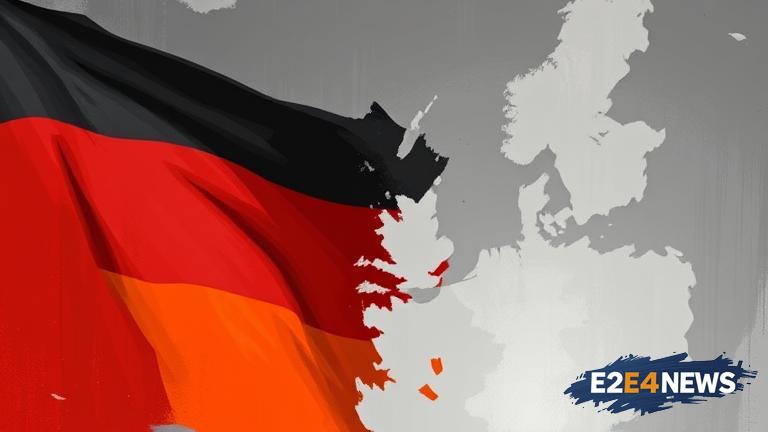In recent years, Germany has been at the forefront of efforts to combat online hate speech, with the introduction of laws and regulations aimed at curbing the spread of harmful content. However, a growing number of politicians and lawyers are expressing concerns that these measures may be going too far, potentially infringing on individuals’ right to free speech. The issue has sparked a heated debate in Germany, with some arguing that the use of trusted flaggers to identify and remove online hate speech is a necessary step to protect vulnerable groups, while others claim that it could lead to censorship and stifle legitimate online discourse. The German government has introduced a number of initiatives aimed at tackling online hate speech, including the Network Enforcement Act, which requires social media platforms to remove harmful content within a certain timeframe. However, critics argue that this approach is too broad and could lead to the removal of legitimate content, thereby undermining freedom of speech. Furthermore, the use of trusted flaggers, who are tasked with identifying and reporting online hate speech, has raised concerns about the potential for bias and abuse of power. Some have argued that these flaggers may be overly zealous in their efforts to remove content, potentially leading to the suppression of dissenting voices and the stifling of online debate. On the other hand, proponents of the approach argue that it is necessary to protect vulnerable groups, such as minorities and women, from the harmful effects of online hate speech. They claim that the use of trusted flaggers is a proportionate response to the scale and severity of the problem, and that it is essential to ensuring that online platforms are safe and respectful environments for all users. The debate has also raised questions about the role of social media platforms in regulating online content, with some arguing that they should be doing more to tackle online hate speech, while others claim that they are already doing too much. The issue is complex and multifaceted, and it is likely that the debate will continue in the coming months and years. As Germany continues to grapple with the challenges of regulating online hate speech, it is essential that policymakers and stakeholders engage in a nuanced and informed discussion about the balance between freedom and regulation. This must involve careful consideration of the potential consequences of different approaches, as well as a commitment to protecting the rights and freedoms of all individuals. Ultimately, the goal should be to create a safe and respectful online environment that promotes freedom of speech and protects vulnerable groups from harm. The German government has a responsibility to ensure that its efforts to combat online hate speech are proportionate and effective, while also respecting the rights and freedoms of all individuals. By engaging in a thoughtful and informed debate, Germany can help to promote a safer and more respectful online environment, both at home and around the world. The issue of online hate speech is a global problem that requires a global response, and Germany’s efforts to tackle it are being closely watched by other countries. As the debate continues, it is essential that policymakers and stakeholders prioritize the protection of human rights and the promotion of freedom of speech, while also taking steps to address the harm caused by online hate speech. The use of trusted flaggers is just one part of a broader approach to regulating online content, and it is essential that it is used in a way that is transparent, accountable, and respectful of individual rights. By working together, we can create a safer and more respectful online environment that promotes freedom of speech and protects vulnerable groups from harm. The future of online regulation is uncertain, but one thing is clear: it will require a careful balance between freedom and regulation, as well as a commitment to protecting the rights and freedoms of all individuals. As Germany continues to navigate the challenges of regulating online hate speech, it is essential that it prioritizes the protection of human rights and the promotion of freedom of speech, while also taking steps to address the harm caused by online hate speech. The debate is ongoing, and it is likely that we will see further developments in the coming months and years. For now, it is clear that the issue of online hate speech is a complex and multifaceted one, and that it will require a nuanced and informed approach to resolve. The German government has a responsibility to ensure that its efforts to combat online hate speech are effective and proportionate, while also respecting the rights and freedoms of all individuals. By engaging in a thoughtful and informed debate, Germany can help to promote a safer and more respectful online environment, both at home and around the world.
